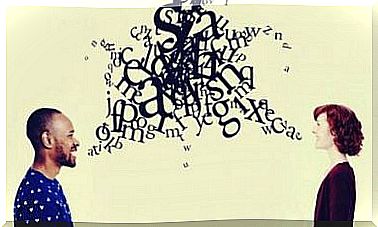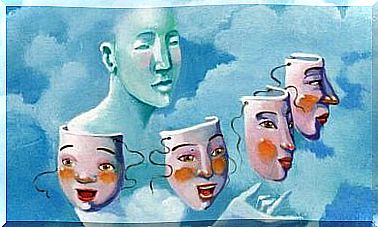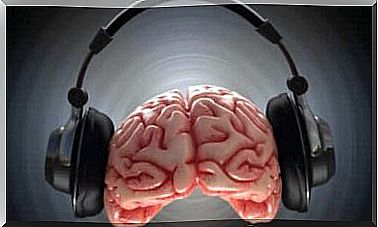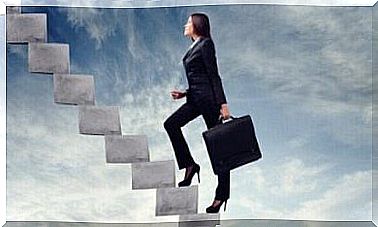Stage Fright And Fear Of Failure: What To Do?
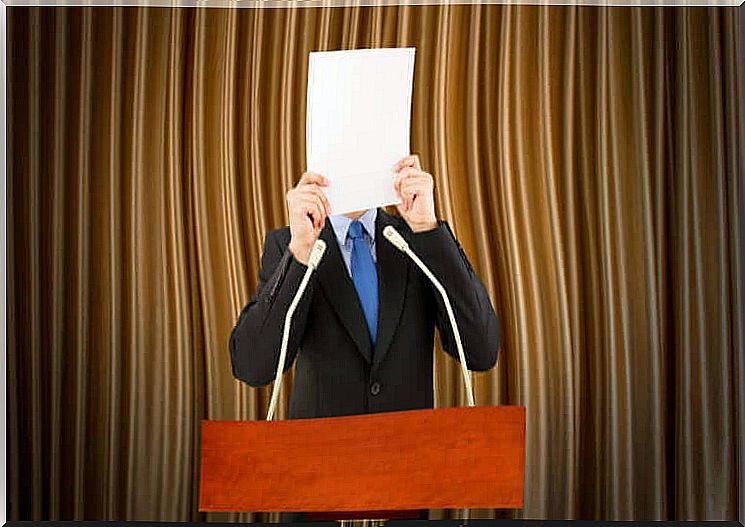
Stage fright and the fear of failure plague us all in general. These are normal sensations that one experiences in situations where one is exposed to the evaluation of others. They are normally related, because one of the triggers for anxiety in this type of situation is the judgment that others make about a certain behavior (evaluation anxiety).
While these fears are normal, when they become very intense they can limit an individual’s life and cause them to forgo valuable opportunities, for example. This article offers a description of their characteristics, associated symptoms and ends with a series of recommendations for dealing with these fears.

The characteristics of stage fright
The stage fright problem manifests itself when it limits the possibilities of the individual, eventually producing significant discomfort. It is observed when the person gives up activities or delays certain events due to stage fright.
Wanting to control this type of sensation is often the real cause of the problem. Among the symptoms of stage fright, the following stand out:
- Tremor of extremities
- Dry mouth
- Excessive sweating
- Knotted throat
- Pressure in the chest and stomach
- Tachycardia
- Dizziness
- Feeling of unreality
- Fear of losing control of the situation
- Fear of failure and valuing others
Stage fright and fear of failure
It is common, even healthy, that the evaluation or the perception of the evaluation generates a certain activation in us. In stage fright, this activation is so intense that it can adversely affect a person’s performance or even stop or prevent exposure or performance. On the other hand, the requirement is often at the origin of this fear.
In other situations, the anticipation of failure causes the person to put in place a series of measures to eliminate or avoid internal sensations which, in principle, are normal. These attempts to eliminate these symptoms cause them to become more prominent.
Thus, the sensations to be eliminated may come to monopolize most of the individual’s attention, leaving the exposure in the background. Let’s see how to fix it.
What can we do when the stage fright and fear of failure emerges?
It should be noted that stage fright is a fear that manifests itself in all individuals. Even among those who have the most experience in conducting exhibitions in front of an audience), regardless of the activity.
Sometimes we tend to watch the speeches of relatively successful people, believing that they don’t have to face fears or insecurities. However, the only difference is often that they don’t see the situation from the symptoms but beyond the symptoms.
If these symptoms are with you, it’s probably because the situation is important to you. How far will you let the symptoms get the better of you and what can you do to get away from it?

Recommendations to take into account
- Do rehearsals where you can record yourself doing the activity you are asked to do in public (dancing, playing an instrument, talking about a certain topic, defending a project, etc.)
- Seeing / listening to yourself means that you are gradually making small exposures to the circumstances that can generate fear in you. In the recordings, you can deliberately make mistakes to see how much they can tarnish your performance.
- Play the game. What other things in your daily life give you symptoms similar to those you have when exposed in public?
- What do you usually do? What do these symptoms tell you that you cannot do? what’s the one small step you can take to change the situation?
- Watch the symptoms as if you were a scientist about to make a discovery. Mindfulness techniques can help you take a closer look at symptoms so you can get to know them better and gain distance from them, without the symptoms of discomfort dominating the situation.
Stage fright and the fear of failure come with certain sensations that can be unpleasant. These sensations can even paralyze the person or be perceived by him as an insurmountable obstacle.
However, as we have seen, the coping strategies we choose can fuel our own fear. Especially if we focus on censoring thoughts or avoid exposing ourselves.


